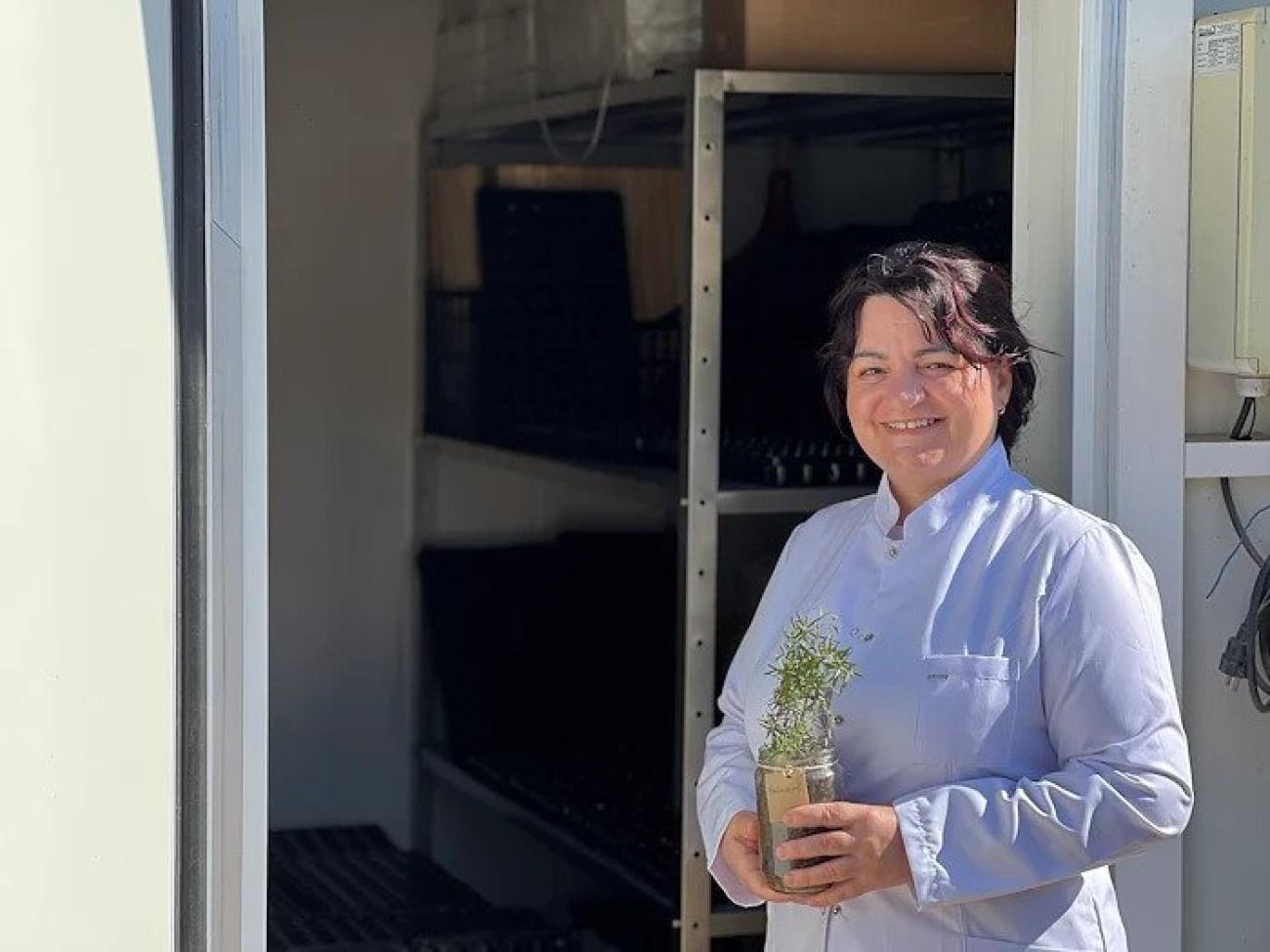Kosovo Women Unlocking the Potential of Organic Production

Organic production has always been one of the key economic activities in Kosovo.
Organic production has always been one of the key economic activities in Kosovo. However, organic production has begun to gain importance only during the past few years, when Kosovo women, passionate for organic farming and production, started promoting and developing this approach.
.jpeg?auto=webp)
Havushe Bunjaku, owner of ‘99lule’, which deals with medicinal and aromatic plants, is one of them. She is among the first women in Kosovo, to have started using non-timber forest products (NTFP) such as herbs, spices, aromatic plants for food and health purposes. This is her story; A story of visionary entrepreneurship and commitment to a green and sustainable future. Havushe, a biology graduate, first started in 2009, sampling organic teas to her close family, friends, and neighbors, to very soon become one of a few women entrepreneurs in the organic sector in Kosovo. “At the time, there was no awareness about organic food and its benefits whatsoever. It required time and investment to build the customer network I currently have,” says Havushe while walking us through numerous challenges she had been facing in the beginning. “I never gave up, I personally used to participate in various fairs, bring in my products, and talk directly with the consumers, so that they really understand what organic products and their health benefits are,” she adds.
.jpeg?auto=webp)
.jpeg?auto=webp)
Now, Havushe’s business is among a few with organic certification, issued by Albinspekt, a certification body operating in Albania and Kosovo. The food produced by ‘99lule’ is based on the European organic regulations and principles, meaning it is from Organic production ingredients and no external inputs such as fertilisers, pesticides, and food additives are used. This way, ‘99lule’ ensures to promote environmental protection, maintain the biodiversity of Europe and build consumer trust in organic products.
Through the BOOST x Kosovo Programme, Havushe assisted by her teenage daughter, Erblina, managed to push organic production forward by expanding her product line as well as increasing production capacity. It was mid-September last year, when Erblina, currently studying Mathematics and Engineeringin Edinburgh, came up with an innovative solution, called‘Greenergy’, and got selected for the UNDP’s 6-month acceleration programme. Throughout this period, they have been technically and financially supported in their efforts to a greener and a more sustainable future, while using Organic production waste to produce affordable, organic-certified, and sustainable spices.
.jpeg?auto=webp)
.jpeg?auto=webp)
“The grant we received from UNDP’s initiative ‘BOOST x Kosovo’ helped us grow in multifaceted ways. Our investment in solar panels, solar pump inverter, and an herb extraction machine has paid off for ‘99lule’. 50% of our daily operations are now powered by solar energy, and energy bills have gone down ever since,” Havushe states.
.jpeg?auto=webp)
Importantly, ‘99 lule’ has added value to the community by creating employment opportunities for dozens of women living in rural areas nearby. Over 50 women farmers have now joined ‘99lule’ and Havushe in her mission to provide high quality products by being engaged in every stage of the production process, from seeds to the final processed and packaged food. These organic products can now be found in various supermarkets, pharmacies, and restaurants all across Kosovo. Recently, ‘99 lule’ has started to export its products to Switzerland, aspiring to soon expand the distribution to other European countries as well.
.jpeg?auto=webp)
‘Greenergy’ of Havushe Bunjaku is among the 15 winning solutions of the first edition of BOOST x Kosovo, supported by UNDP Kosovo and the Government of Japan, and implemented in cooperation with the European Bank for Reconstruction and Development (EBRD), and the Innovation Centre Kosovo (ICK). The local chapter of the regional BOOST Programme launched in September 2022, aimed to support businesses and communities to rebound from COVID-19 and build a climate-resilient future.
Story by: Rina Abazi Photo credit: Rina Abazi

